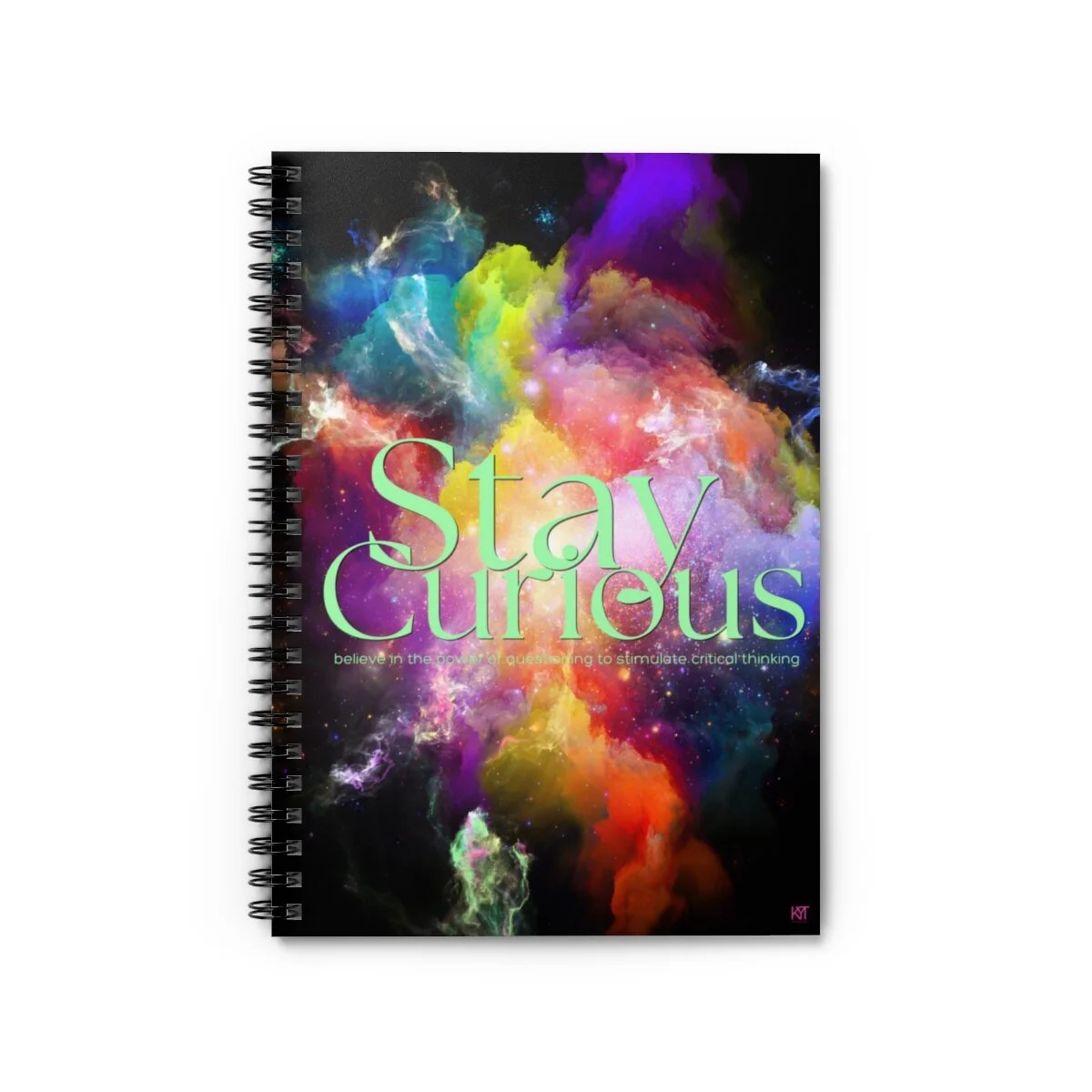Nosy or Naturally Curious?
Kyetu Catalyst. A spark to ignite change!
✨✨✨✨✨
Hey there, Catalyst Community! I'd love to start today with a relatable moment. One that involves my daughter. It goes back to last summer when she hopped in the car after a day at summer camp.
Out of the blue, she drops a bombshell. "Mommy, I'm nosy." Needless to say, I was instantly taken aback. Here, my curious, vivacious, seven-year-old child, bursting with thirst for life, labeled the ugly “nosy”, for undoubtably wanting to understand something, without taking into consideration the context. Which I might add, is completely age-appropriate.
In the nanosecond that I'm processing how to respond to her, I'm also thinking of my own childhood, where I was relentlessly labeled “nosy”, recalling those painful feelings. I just wanted to quench my thirst for knowledge, but I inevitably just ended up irritating the adults, with my incessant questions.
Thankfully, in my lack of an immediate response, my daughter posed a second question, "What does nosy mean?"
And that's what I'd like to talk about in today's Kyetu Catalyst.
Curiosity is powerful. It yields trying new things, inventions, progress, and growth. It is a gift.
But what about the old proverb, ‘Curiosity killed the cat!’, cautioning against the perils of being too inquisitive. Is it truly a warning or a misunderstood piece of advice?
Questions aren't nosiness; they're expressions of a curious mind, a mind hungry for knowledge and understanding. It's an exploration of the world, a beautiful thing that should never be stifled.
Yes, of course we need to teach our children the concept of “time and place”, and to learn to manage outbursts and interruptions. But to assign a negative label to intellectual pursuit is damaging.
Curiosity and questioning. A beautiful, wonderful thing that should never be tainted by negative labels.
This is not new. It is the underpinning of intellectual development, valued by every historical philosopher.
Socrates, and his renowned Socratic Method, believed in the power of questioning to stimulate critical thinking. He would engage in dialogues with others, asking probing questions to help them discover their own beliefs and values.
Descartes’ famous phrase "Cogito, ergo sum" (I think, therefore I am) reflects the importance of questioning one's own existence and beliefs.
Kant argued that curiosity is an innate human characteristic that drives individuals to explore and seek understanding.
So for a camp counselor to squelch a child’s longing for learning, with a throwaway label, is so highly unfortunate.
How does all of this resonate with you? Can you grab your journals now? Take a moment. Just three to five minutes and reflect on how you’ve been inaccurately labeled and misjudged. How has this impacted you? Have you ever let someone else's words dim the light of your own inquisitive nature?
This is your life. You get to live it on your terms and seek to understand whatever you like. Never, ever, let anyone stifle your curiosity. Ever. Period. Embrace the questions, the wonder, and the desire to know more. The act of questioning not only leads to intellectual growth, but also encourages a deeper engagement with one's own beliefs and the surrounding environment.
Thanks for joining us on today's Kyetu Catalyst. Please share our podcast with family, friends, and in your social networks. You just might be someone else’s spark to ignite change!
✨✨✨✨✨
Kyetu. Who do you think you are?
Has this Catalyst inspired you to embrace a path to genuine self-discovery, and to define your authentic identity? If so, please share it with others who may benefit. Together, let’s be…


